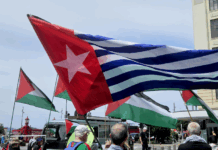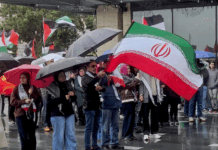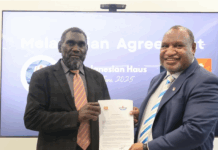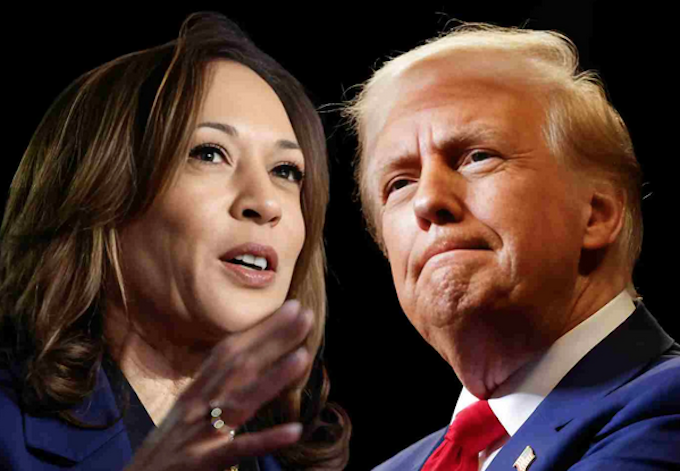
With Election Day for one of the most consequential United States presidential races in recent history underway, Pasifika communities on both sides of the Pacific Ocean are considering how a new administration could impact US-Pacific relations.
Roy Tongilava, a public policy professional and Pacific community advocate in the United States, hopes to see improved US-Pacific relations under either a Harris or Trump administration.
“I’m not an expert in foreign affairs, but my hope would be that either a presidency under Harris or under Trump would continue to build those relations, to build those investments, to really help not only combat climate change but also to really aid in the Pacific development, which is inherently connected to what I believe is the Pacific Islander American experience,” he said.
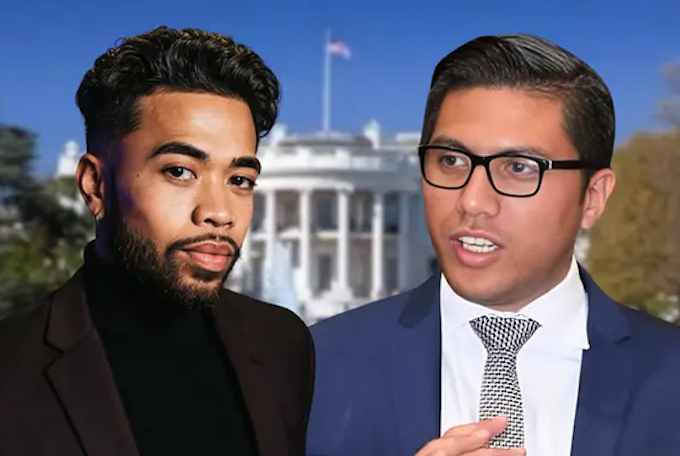
- READ MORE: Al Jazeera US elections live updates
- How the US election may affect Pacific Island nations
- Donald Trump ‘unfit to lead’ – vote for Harris, warns New York Times
- Other US presidential elections reports
- View the complete CNMI results
New Zealand political commentator and former chair of the National Party’s Pacific Blues group, Christian Malietoa-Brown, is backing Donald Trump in the presidential race.
He says the Pacific is caught in a “tug-of-war” between major powers like the US and China, with Australia playing an increasingly significant role.
“For me, I think in terms of long-term investment, Trump likes to prevent war by showing strength . . . I think they [the US] will strategically put some investments here just because they don’t want China running around too much in this area for defence reasons.
“Under the Biden administration, we saw record investment down this way in the Pacific region, obviously to try and push away China’s influence in the region,” Malietoa-Brown says.
Picking a big player
“So you have China, you have America, you have Russia, you have India that’s coming up big,” Malietoa-Brown said.
“And if I had to pick a big player to be in charge of the world, I would pretty much stick to America as it is right now, because that’s the devil we know, rather than someone else that we don’t know. And that’s probably purely a selfish thing.”
Tongilava agrees that the Joe Biden administration has been positive for the Pacific region in terms of investment.
“The Biden administration has pumped record investment into the Pacific to a number of things, infrastructure, education, all of that. Ultimately, though, to try and cool off and push away China’s advances towards this region.
“We’ve seen Vice-President Harris during her time as Vicep-President really commit to climate change as well as building relations within the Pacific region,” he said.
Education concerns
For Tongilava, who is part of the South Pacific Islander Organization (SPIO), a nonpartisan non-profit organisation that champions education and workforce development for Pacific youth, this election has serious implications for youth.
“Our mission is laser focused on enhancing college access, college retention, and degree completion for Native Hawai’ian and Pacific Islander students throughout our college systems,” Tongilava said.
“A lot of our work has focused on expanding educational opportunity and workforce development for young Pacific Islander students.
“In terms of education, I think it is crucial that Pacific Islanders turn out today in support of the policies specifically that may hinder or create opportunity for their families and for their communities,” Tongilava said.
He said it was crucial that Pacific Islanders vote in support of the specific policies that might hinder or create opportunities for their families and their communities.
Tongilava is concerned about Trump’s proposal to dismantle the US Department of Education, noting that such a move would disproportionately harm communities like the Pacific Islanders, who often rely on federal support for educational programmes.
“This raises additional questions around what role does the federal government play within our school systems here within states and at the local level. For many Pacific Islander Americans, we live in under-resourced communities,” Tongilava said.
Republished from Pacific Media Network with permission.





























